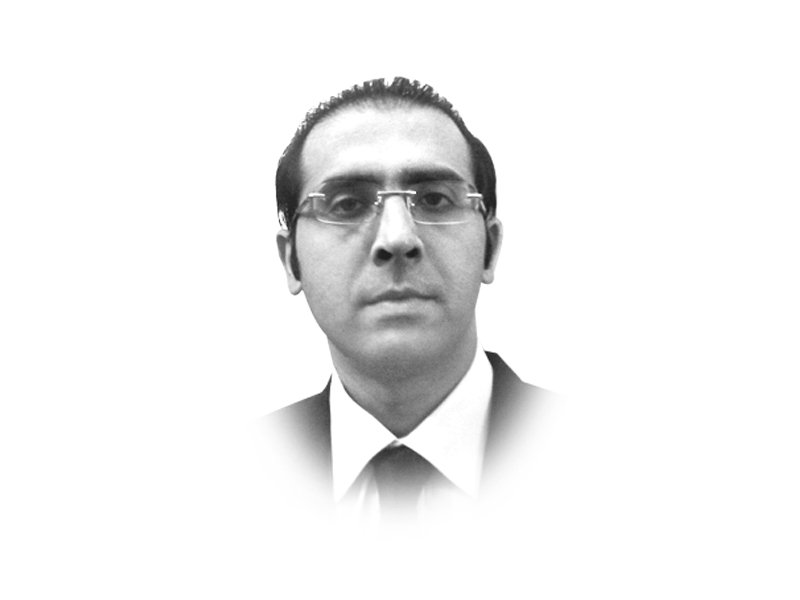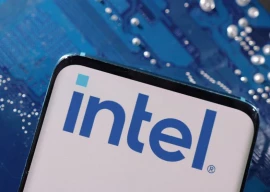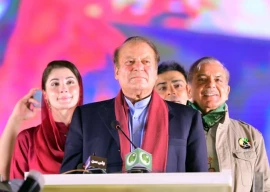
However, after the second or third day of a sit-in, the traffic jam begins to irritate us a little. The television anchors seem to repeat themselves. There is work to be done, social events to attend, bills to be paid. We have done our bit, changed our Facebook status, expressed horror and outrage, maybe even stopped by at a protest on our way back from work. Now we have to get on with it. In short, we want business as usual. To imagine, that nothing happened or maybe just that bad things happen to other people. In short, not to imagine, that there will never be business as usual for a lot of people, the show has ended. For many children, in Philip Larkin’s words, there will be, “Never such innocence again”.
Our capacity to go on despite the terror and misery around us, is loftily termed as “resilience”, “the spirit to carry on” and other such clichés. Perhaps, it is not resilience, perhaps it is simple cold-blooded apathy. Maybe it is just a validation of Tolstoy’s observation in Anna Karenina, “There are no conditions of life to which a man cannot get accustomed, especially if he sees them accepted by everyone around him.” Maybe, it should not be business as usual, more roads need to be blocked, more of ordinary life disturbed. The sole reliance on human empathy is a feeble hope; all it gets you is tersely worded slogans after the mass graves, after the deed is done, “Never again”, “Never forget”, etc.
The cynicism has facts to bear it out. The PML-N did not have the courage to name the Lashkar-e-Jhangvi (LeJ), even when it had taken responsibility. Not even the shame to apologise for the electoral arrangement with Malik Ishaq. It is even more chilling to reflect on what sort of voters approve of this arrangement. Malik Ishaq was acquitted by the courts; the courts which deem it worth their time to order the registration of a blasphemy case against Sherry Rehman, which has now been registered by the same Punjab police which provide security to Malik Ishaq. The prime minister did not have the common decency or the spine to attend the funeral or even reach out to the victims. The Supreme Court is unwilling to believe the LeJ’s admission of responsibility. Even those who condemn the LEJ by name, in the same breath, ask for negotiation with the TTP. The same TTP which also thinks of Shias as wajib-ul-qatl, the same TTP whose alliance with the LeJ is no secret. What wicked stupidity is this? If we have to do this, let all those arguing for negotiation hold a conference at the Hazara graveyard. Look the victims in the eye and tell them that although we are sorry for their loss, yet we think it best to surrender. Hold the hand of the 85-year-old grandfather in Lahore and tell him that his 12-year-old grandson killed on his way to school, for being born a Shia died in vain. We think it is good strategy to make a deal with his murderers.
The army has never felt the need for forging a consensus when it comes to Baloch nationalists or finding the ‘anti-state’ elements within them and make them go missing. Yet, the TTP and the LeJ hold press conferences at will. The ISPR tells us that the army has no links with any banned outfits. Let us take its word, however, the question of how 1,000kgs of explosives move in the FC garrison, known as Quetta, still remains. How come no LeJ operatives have been apprehended till these horrific blasts? How come Usman Kurd escaped from a maximum security prison? The ISPR might have answers to these questions; we have not heard them yet. Perhaps, a sit-in outside the GHQ might persuade them to answer. Before we move on to our next tragedy in waiting, it might serve us to have that overdue debate on our national security state paradigm and how it is killing us.
Those who were protesting with coffins were not soliciting our pity. Our sympathy is futile. Our empathy is not strong enough. They are not victims of a random accident or natural tragedies. They are victims of carefully planned, sophisticated attacks of murder conducted by people we know of. We have to take on the LeJ, the TTP and anybody who shares this sectarian, murderous ideology for a minimum standard of fairness, decency and self-respect. If that does not persuade us, then we have to do it for self-interest. For that reason, ponder over the almost imponderable question, “what if it was your child?” To argue for the use of force makes some people uneasy. The full might of the state has to be used to crush these criminals. The argument for the use of force has to be made unashamedly; we will be ashamed later for not doing so.
I defy anyone to go to sleep after viewing the picture of a beautiful Hazara child crying over the body of her father. This is when the cliché of “never forget” comes to life. However, at a level we might not be willing to acknowledge yet, we will forget, most of us will. We will find a way of going to sleep soon. Before that time, before business as usual, before the next massacre, we have to take these murderers on and deliver them to justice. Watching the Hazara men, women and children sit in defiance to the cowardice and apathy that surrounds them on a bleak day, in sub-zero temperature, one may end by quoting the words of Edmund Blunden: “This was my country and it might be yet/But something came between us and the sun.”
Published in The Express Tribune, February 24th, 2013.
COMMENTS (32)
Comments are moderated and generally will be posted if they are on-topic and not abusive.
For more information, please see our Comments FAQ
































1714024018-0/ModiLara-(1)1714024018-0-270x192.webp)









great piece of analysis
Author is putting fingers on every body but what the government has done. Government that has all state machinery at its disposal. Fact remains that it is a failure of the ruling coalition from railways to security, everything is messed up.
Thank you for speaking for us. Well written, to the point and hopefully an eye opener who still think LeJ's killings are justified.
When it comes to faith, there is only one true path and we must all get on that path so that peace can be restored.
When a PAKISTANI soldier dies defending his country, the whole of PAKISTAN laments his death. Nobody asks what sect did the martyred soldier come from. When a particular SECT is targeted in their hundreds, only the SECT mourns it's DEATH. Something, somewhere has gone wrong.... Come brothers, any answers!!!!!!!
One has to salute you for your forthright views and your courage to voice them. I feel that at this low point in our affairs there is nothing more depressing or worrisome than the perception that our security establishment appears at a total loss and gives the impression of floundering around in the dark.
@BruteForce Why even call then Ahmadis or Muslims or Ahmadi Muslims? Why not just "fellow human beings"? All human beings have common DNA to the extent of 99.7 per cent....the divisions on basis of religion, caste etc is man-made. But try telling it to the Islamic Republic of Pakistan where no one opens his or her mouth without some invocation to non-existent beings...
@MilesToGo:
Killing human beings is not a matter of right or wrong, just a human right to life. It s this mindset that leads to such criminal behaviour and should be condemned by all Pakistanis irrespective of their faith.
When around 3 or 4 years ago when Ahmadis were being targeted a lot, such articles appeared every day in the newspapers in Pakistan. Outrage was expressed.
What happened? Nothing.
Things are still the same, only targets have differed. Ahmadis have learnt their lessons and possibly have not ticked off any Militant sympathisers or have learnt new ways of hiding their real identity.
Shias, who did not come to their rescue, who were the next item on the Hit List, are now being targeted. Is that really a surprised?
Words have great effects on Nations. Gandhi and Nehru spoke through their speeches and columns in newspapers to the nation. Words of ministers scrutinised and analysed by the media even today. Words have value.
Is that true in Pakistan? Are words becoming hollow in Pakistan?
I don't remember a single instance where any author has referred to Ahmadis as Ahmadi Muslims. Words in Pakistan only have nuisance value it would seem, never any positive effect.
The real question is whether Constitution is supreme or the Armed Forces. It seems like the Constitution is a simple social contract which doesn't apply to many a citizen. So if you have never controlled the Army under the constitution then how can you ask for justice in the name of the said Constitution.
So in summary, Constitution is not equipped, Politicians are not brave enough, Supreme Court is just another sham institution. There is only Army which protecting its interest and its plans which include LeJ to kill innocent citizens. may be constitutional amendment need to be passed to make it so it is legal.
OK
@Karella: They asembled under the label AWSJ. This whole idea that when a group is banned, all its leaders can adopt a new name and function openly is unique to Pakistan. LeJ/AWSJ are not the only example. I am sure you know of LeT and JuD as well.
How many innocent humans must be killed by Malik Ishaq in Pakistan to prove him guilty????????????????????????????????????????????????????????????????????????????????????????????????????????????????????????????????????????????????????????????????????????????????????????????????????????????????? If this time he was released, Pakistan will educate the minds of the younger terrorists to believe that their way of terrorising people is RIGHT! 20% of Pakistan is Shia and they didn't chose it! It can happen to any one any where and any time! So please lets all practice freedom of religious beliefs! Lets see Justice! People are hungry for it. No matter if you are Sunnies or Shias or non-Muslim Pakistanis.
Stunning analysis Saroop Ijaz Sahib. Touching, heart rendering and reaffirmation that there is humanity somewhere still within us. A voice of sanity in this madness called religious, ethnic and sectarian warfare, or sometimes named cleansing - which is as cruelly named as friendly fire. For thousands of Hazaras ".....there will never be innocence again..." , "....for them, the show is over..." If that doesn't move a human being, he is not of us. Unfortunately, there are so many amongst us that are no longer, of us.
@Nadir:
Have you thought about the demotivation of all the innocents who are outside the armed forces?
Saroop, you are trying to wake up a dead nation. Although it is already too late but let's hope it works!
what if Pakistan didn't support and used Taliban against Soviet invasion..... What if Taliban represent Islam with their untidy and fanatic manners..... What if Nawaz Sharif condemns LeJ and stop backing their leaders.... Whatt if Saudis stop funding global terrorism..... What if Pakistanis have a better image in Arab countries... What if we consider each other as a human being..... What if we promote harmony and brotherhood among one another... What if I haven't left Pakistan.. What if you could be targeted for your professionalism... what if Pakistan's liberal sunni muslims raise voice for the Hazara shia community..... What if.....?
ISPR is too busy contemplating what to say in their next statement about not poking their nose in the affairs of government. They have no time for fickle issues. I think pakistanis, the so called silent majority, deserves what is happening to them. And they follow a religion which says very clearly that if you are silent on a crime, God will consider you among criminals and will give you same punishment. Ashamed to be a pakistani now.
“what if it was your child?” No it cannot be my child because my child is a Sunni Muslim and safe from this genocide. I am ashamed to say it but this is the real truth and the whole truth. When we massacred thousands of Bengali and try to change their genes not many people from the W. Pakistan stood against that barbarism. Now the history is repeating itself and most people again are indifferent from the targeted killings of Shia and Hazara. Fairness, justice, mercy, equality, human rights fear of God are nowhere to be found in Pakistan. Sorry Saroop but this is the truth.
Thank You Saroop for putting into words what we Shias feel and experience on a daily basis. God Bless You.
Saroop, I must commend you for this brilliant piece. We must support justice for the Shia victims.
Thank you for calling a spade a spade. This Saudi sponsored charade has gone on long enough.
@ author
You are getting too emotional. This conflict did not start yesterday. Its a matter of right and wrong.
We all need to follow one true path for peace.
Thank you for reminding us AND we shall not forget...
Our interior minister came on TV today, pledging that he would take action against LeJ. A piece of advice, were these guys not huddled in protests yesterday in many cities including Quetta and Karachi? Why did he not just go out and arrest them all. Or is it that being a member of a banned organization carries no punishment in our penal code. If that is the case, why bother banning them in the first place. Saroop, eloquently put as usual.
have nothing to say...feel guilty when we see such things n cant do anything...im really frustrated...great work sir...
In fact on Feb 20th, as reported in this newspaper, the CJP in a suo-moto hearing on the incident said:
http://tribune.com.pk/story/509898/hazara-town-carnage-sc-questions-role-of-intelligence-agencies/
There is really no end to the author's efforts to put down the SC and the CJP. If it takes twisting the facts and reality, so be it. Why does he not go after his favorite feudal and wadera thugs who are in charge of the government today instead of always beating down on the SC? Is it the SC responsibility to maintain law and order or of those people who are regularly supported by the author - barring a few exceptions which really [prove the rule - and are busy looting and ruining this country? How often does the author take them to task?
But that would be too much to ask for, I think.
Yours is a voice in the wildernes. It is understandable in an english Newspaper catering to people largely outside of the country. But did anyone ever really care for all the Parsis, Hindus, and Sikhs who have disappeared from Pakistan (over 20% at one time and now less than 1% of the population)? Did anyone really bother with the Christians of Pakistan? How about the Ahmedis? Shias are 20% of the population and perhaps they will put up a resistance that will amount to something. We have a long long history of not caring.
I literally cried like a kid watching these children & women sitting next to their dead relatives! What kind of humans are we? Are we really humans or what? How we can kill innocent children, women & men in the name of religion? Do these killers feel that their God would reward them by killing innocent human beings who for no fault of their own were Hazara Shias? Pakistan lost it innocence on July 4, 1977, the dark day when Gen. Zia ul Haq took over from an elected PM and later hanged him. Whether we like ZAB or not but he was the elected PM!